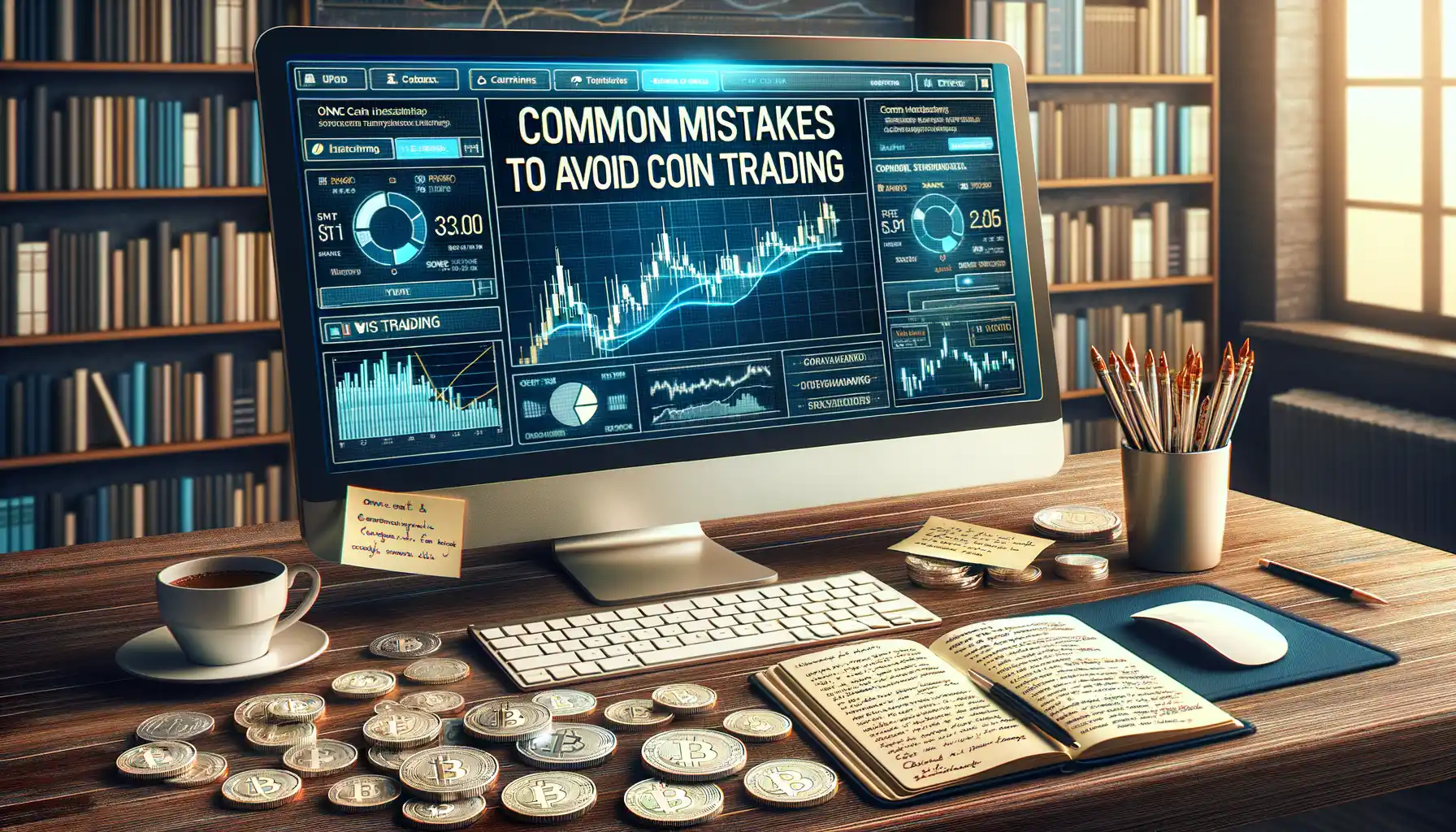Understanding the Risks of Online Coin Trading
The Hidden Pitfalls You Need to Watch Out For
Trading coins online can feel like a treasure hunt—exciting, full of potential, and, let’s face it, a little nerve-wracking. But just as you wouldn’t dive headfirst into the jungle without a map, stepping into online coin trading requires some serious groundwork. Why? Because the risks are very real, and they come in all shapes and sizes.
Let’s talk scams. Scammers are everywhere, prowling under the guise of too-good-to-be-true offers or fake “verified” profiles. Ever heard of phishing? That’s when you’re tricked into giving away your private information. One wrong click, and boom—your hard-earned coins vanish into thin air.
Then there’s market volatility. Coins that glitter today might lose their sheen tomorrow. Imagine buying a rare collectible at peak price, only to see its value plummet overnight. Ouch.
Cybersecurity threats are another monster lurking in the shadows. Without proper safeguards—like two-factor authentication or secure passwords—you might as well leave the vault open for hackers. And don’t get me started on shady platforms that disappear faster than a magic trick.
Be skeptical, stay informed, and most importantly, always trust your gut. A little caution goes a long way!
Steps to Ensure Secure Transactions

Double-Check Before You Hit ‘Send’
Imagine this: you’re about to finalize a coin trade, your digital wallet glows with anticipation, and your finger hovers over the “send” button. Pause. Breathe. This is that split-second moment where good intentions can spiral into regret. To ensure secure transactions, start by confirming every detail—the wallet address, payment amount, and transaction ID. A simple typo can send your prized coins to a digital abyss, never to be retrieved.
Also, communication matters. Always interact with the other party through secure channels. If they suddenly shift to a shadier platform or throw in phrases like “trust me,” take it as a big red flag. Scammers thrive on haste, so don’t let anyone rush you.
- Only trade on platforms with encryption protocols (look for HTTPS and security badges).
- Use multi-factor authentication for accounts linked to your trades—it’s like double-locking your front door.
- Double-check exchange rates and transaction fees upfront to avoid nasty surprises.
Protect Your Information Like Treasure
Here’s the golden rule: guard your personal data. Think of your private keys and account details as if they were the crown jewels. Never, ever, share them—not even with an overly friendly “customer support” agent. Legitimate platforms won’t ask for sensitive details like your passwords.
When making payments, use a virtual private network (VPN)—it’s like trading behind closed curtains instead of a window for everyone to see. Lastly, monitor your transactions. Regularly track your account activity for any unusual movements, because staying one step ahead is the best ammo against cyber thieves.
Choosing a Reliable Platform for Coin Trading

Why the Right Platform is the Building Block of Your Success
Imagine this: you’re about to board a plane. Would you pick the cheapest airline with no reviews, or one with a spotless safety record and glowing feedback from other travelers? Trading coins online isn’t so different. The platform you choose can either be your launchpad to success or a road littered with regret.
Here’s the golden rule: look for platforms that scream “trustworthy.” A reliable coin trading site prioritizes security just as much as profits. Seek out platforms with robust encryption, multi-factor authentication, and transparent user policies. And don’t forget the fine print—because hidden fees are the silent predators of your profit margins.
How to Spot a Platform That Has Your Back
Consider these must-have features as your checklist:
- Reputation: Look for platforms backed by positive reviews from real users across credible sources. If everyone’s raving about them, there’s a good reason.
- Licenses: Ensure the company operates legally and has international or local regulatory compliance. No grey areas here!
- Customer support: Ever try to scream at a wall when something goes wrong? Yeah, bad support is like that. Choose a platform with live chat, email, or phone assistance.
Think of this process like choosing a partner for a dance competition—you need someone reliable, experienced, and who knows all the right moves to make you shine!
Best Practices for Protecting Your Investments

Smart Moves to Secure Your Financial Future
Protecting your investments isn’t just about locking them up—it’s about ensuring they thrive in a safe environment. Think of your coins as precious artifacts. Would you leave them out in the open, or secure them in a high-tech vault? Let’s build that vault together.
- Diversify, but don’t scatter: Investing in multiple assets spreads out your risk, but don’t overcomplicate. Keep track of where your funds are to avoid losing sight of your wealth.
- Cold storage is your ally: For serious traders, storing coins offline (cold wallets) is like keeping treasures in a private safe. Hackers can’t touch what they can’t reach.
- Stay vigilant: Don’t just focus on opportunities; watch out for potential threats. Regularly review any services, platforms, or wallet software you choose.
Master the Art of Risk Management
Every trade is a leap into the unknown—exciting but risky! Establish personal “red lines.” For example, set clear limits for losses or gains. That way, fear and greed won’t hijack your journey.
And finally, keep your emotions in check when the market twists and turns. Breathe, analyze, and remember: smart decisions, not impulsive ones, protect your hard-earned financial future.
Common Mistakes to Avoid in Online Coin Trading

Skipping the Research Phase
Picture this: you’re diving into online coin trading, dazzled by shiny promises of profit. But here’s a hard truth – failing to do your homework can turn that sparkle into regret faster than you can say “rare coin.” Many beginners leap into trades without verifying the coin’s authenticity or understanding its market value.
Before you buy, take a moment to dig deep. Check if the coin is graded by trusted organizations like PCGS or NGC. Research recent sales data and market trends. Think of this step as inspecting the foundation before building your dream house. Without it? Everything might just crumble.
Overlooking Red Flags in Seller Listings
Not every deal that glitters is gold. Scammers excel at dressing up fraud with too-good-to-be-true offers or vague descriptions. Keep an eagle eye out for these common red flags:
- No clear images: What are they hiding? Blurry or cropped photos can mask key imperfections or even fake coins.
- Vague language: Beware of phrases like “I’m not an expert” or “sold as-is.” These are often excuses to dodge accountability.
- Unverified sellers: If they lack reviews or have sudden spikes in negative feedback, take a step back.
Trust your instincts. If something feels off, walk away. It’s better to lose a deal than lose your hard-earned cash.